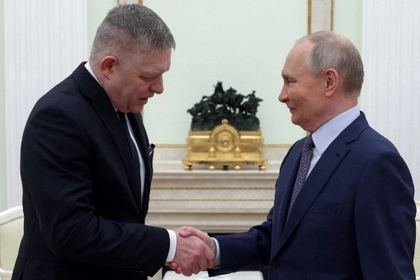Hungarian Prime Minister Viktor Orban, the EU's most pro-Russian leader, arrived in Kyiv on Tuesday, July 2. According to European Pravda, the Prime Minister's convoy of numerous cars arrived at the Hungarian embassy early in the morning.
This visit, his first to Ukraine since the full-scale invasion over two years ago, coincides with Hungary assuming the rotating EU presidency.
JOIN US ON TELEGRAM
Follow our coverage of the war on the @Kyivpost_official.
The Hungarian prime minister is the only EU leader who has maintained close ties with Moscow despite its attack on Ukraine.
The 61-year-old, the bloc’s longest serving leader, has also criticized sanctions against Russia and opposes Ukraine’s EU ambitions, though he has stopped short of blocking accession talks.
Two sources from Budapest have confirmed to The Guardian that Orbán plans to meet with Ukrainian President Volodymyr Zelensky. An aide to Zelensky, Mykhailo Podolyak, did not comment. However, another source in Kyiv has verified the visit, unless there are any last-minute changes.
One Budapest source revealed that the visit followed extensive talks about the rights of Ukraine’s Hungarian-speaking minority near the border.
Unlike most European countries, Hungary has often questioned military support for Ukraine, advocating instead for a ceasefire. After winning the 2022 elections, Orban labelled Zelensky as an opponent who supposedly conspired against him.
Orban refused to send arms to Kyiv and has called for a ceasefire and peace negotiations, saying he was "fighting for peace alone" in the EU.

Zelensky Picks Crimean Tatar Jailed by Moscow as Envoy to Turkey
Hungary has maintained open channels with Russia, with Foreign Minister Péter Szijjártó visiting Russia at least five times since the war began, including a recent trip to an economic forum in St Petersburg.
On Monday, Hungary took over the EU presidency, a move that has concerned many European politicians. This concern is due to Hungary’s frequent conflicts with Brussels over rule-of-law and foreign policy issues, a pattern that may continue during its presidency.
You can also highlight the text and press Ctrl + Enter






